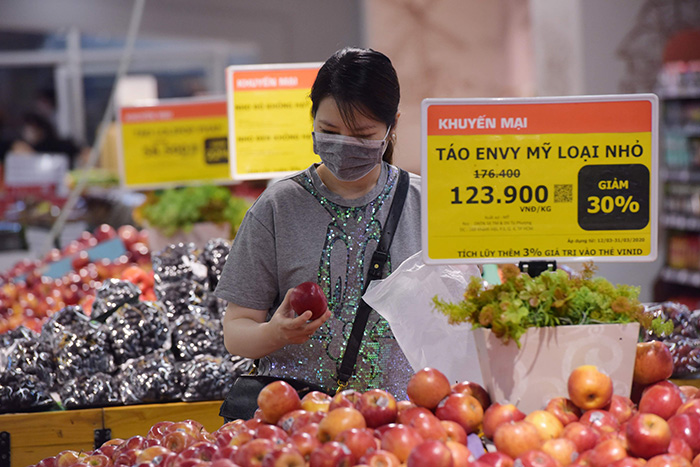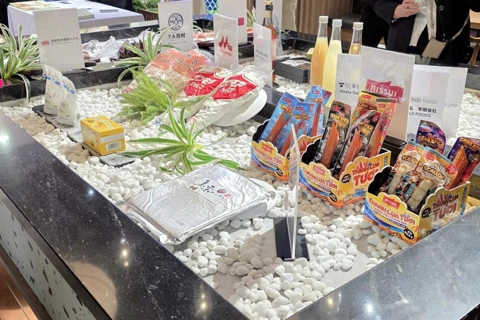Inflation well under Government's control: Experts
A cautious approach in managing inflation could help ensure the consumer price index (CPI) staying below 3%.
While inflationary pressure has been a major risk for many countries around the world, Vietnam has put the issue under control, and unless unexpected things happen, it would stay well below the 4% target set for this year.
| A customer at a Vinmart store in Hanoi. Photo: Cong Hung |
Nguyen Xuan Dinh, representative of the Price Management Department under the Ministry of Finance (MoF) gave his assessment at a conference jointly held today [July 2] by his department and the Academy of Finance.
The consumer price index (CPI), a gauge for inflation, expanded by an average of 1.47% year-on-year in the first six months of this year, the slowest growth rate since 2016, which Dinh attributed to the Government’s flexible management of monetary and credit policies.
Dinh, however, noted some factors are putting pressure on the market prices in the first six months, including hiking prices of input materials such as fuel, construction materials, and educational services.
Vice Director of the Institute of Economics-Finance (IEF) Nguyen Duc Do added a decline in domestic consumption as a result of the Covid-19 impacts limited inflation growth at 0.07% in June against the previous month.
“Low base of inflation and food prices helped offset impacts from increasing fuel prices and construction materials in the past months,” he added.
Do estimated in case the inflation keeps an average growing pace of 0.27%, the inflation rate in December 2021 could hit 3.28% year-on-year and 2.12% for the whole year.
However, assuming petroleum prices continue the surging trend and CPI expanding at an average rate of 0.5% per month, the inflation rate in December would be 4.71%, but the average inflation rate for 2021 would only be around 2.53%.
Economist Dinh Trong Thinh from the Academy of Finance gave two scenarios for CPI in 2021. For the first one as the pandemic stays serious and the global economy facing a slow recovering process, the inflation rate in 2021 would be around 3.3-3.5% with a GDP growth of 6.8-7% in the second half of this year.
In a more optimistic case, a GDP growth of 7-7.4% in the final six months would translate into an inflation rate of 3.8-4%, he noted.
Former Deputy Director of the Vietnam Industry and Trade Information Center under the Ministry of Industry and Trade Le Quoc Phuong said a cautious approach in managing inflation could help ensure the CPI staying below 3%.
“Government agencies should closely monitor prices of basic necessities and strategic input materials to avoid a sudden surge of prices,” Phuong said.
Phuong called for the Price Management Department to tighten credit flowing into risky fields that have been overheating in the past months, including real estate and securities.












